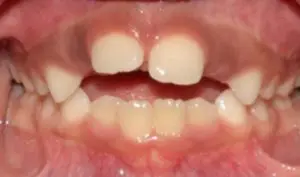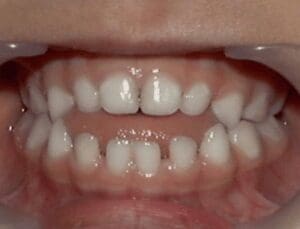
We meet a lot of awesome parents whose children are dedicated thumb-suckers, which can cause a lot of frustration for the family. We hear about all kinds of ways parents try to help their kids give up the habit, and have some tips that can make things a bit easier.
You’re Not Alone
Thumb sucking is pretty common in younger children. The behavior starts before birth, and can develop into a comfort mechanism long after. Nevertheless, it’s a tough habit to break! Even when kids appear to give up the thumb during the day, parents find it happening again around or after bedtime. It’s not usually a problem before the adult teeth start coming in. Most children lose interest in the habit before then. However, growth and eruption patterns of the jaws and teeth can be severely affected if the habit is allowed to continue into permanent dentition.
Stay Positive
Positive reinforcement works! As a parent, you know the best way to do this for your child. Congratulate them when they do well. Studies show that habits take about 21 days to break. Use a calendar as a goal-tracking tool and keep the eyes on the prize!
Look For Consequences
 Thumb sucking can cause problems with development of the teeth, jaws, and fingers. One of the tell-tale signs that the habit is affecting growth is when the upper and lower front teeth do not overlap. This is called an open bite. This forms when the thumb blocks the eruption path of the teeth and causes them to move outward instead of down into their proper position. This can also adversely affect speech, swallowing and breathing patterns. If you notice these signs, give us a call for a complimentary consultation. When caught early enough and corrected, these consequences can be resolved at least partially on their own.
Thumb sucking can cause problems with development of the teeth, jaws, and fingers. One of the tell-tale signs that the habit is affecting growth is when the upper and lower front teeth do not overlap. This is called an open bite. This forms when the thumb blocks the eruption path of the teeth and causes them to move outward instead of down into their proper position. This can also adversely affect speech, swallowing and breathing patterns. If you notice these signs, give us a call for a complimentary consultation. When caught early enough and corrected, these consequences can be resolved at least partially on their own.
Thumbs, Fingers, Lips, Tongues, etc.
Thumb sucking is by far the most common the most common comfort mechanism for children, but it’s not the only one. Fingers, tongue-thrusts, pencils, pens, lips, and pacifiers can all have the same effects on growth and development. Prolonged habits can even cause deformation of fingers and thumbs! Keep an eye out for habits.
Let The Orthodontist Help
Sometimes, having a professional educate the child on the consequences of thumb-sucking can do the trick. Empowering the child to stop him or herself can be surprisingly effective, especially when combined with appliance therapy. However, appliance therapy alone is not very effective if the child has not made the decision to stop the habit.
See You at Seven
Whether a thumb-sucker or not, the American Association of Orthodontists recommends that all children be screened by an orthodontic specialist by age 7. By this time, permanent front teeth should be coming in. If you notice, however, any of the above problems prior to age seven it is better to have the child screened early. About 10-15% of all children need some type of interventional orthodontic treatment to allow proper development of the jaws during the preadolescent growth phase.
If your child has a thumb-sucking habit, call Bakersfield Orthodontist Dr. Jared Gianquinto at Gianquinto OrthoArts for a complimentary consultation at 661-829-7970






